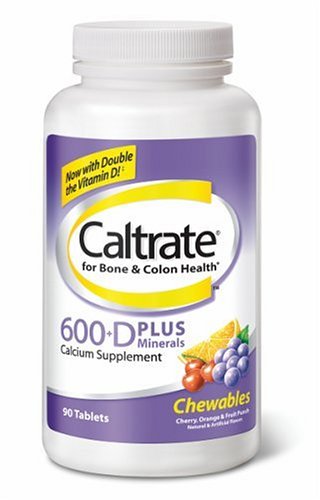On the question of should athletes take supplements there is some research on male athletes, but there is virtually nothing related to recreational exercise or active older adults or women athletes. When athletes have vitamin and mineral deficiencies their performance will be compromised. For example deficiencies of vitamins B1, B2 B6 or C will reduce endurance performance. However, in addition to compromising performance there can be an adverse impact on general health. This article provides some guidelines on amount of vitamin and minerals that an athlete will need.
Vitamin Mineral Supplements
Beyond athletic performance what can vitamins and mineral do for athletes?
Vitamin Mineral Supplements
Vitamin and mineral supplements:
· Boost immune function, speed recovery from illness and injury and help to prevent disease and infection.
· Exercise generates additional stress on the body through the increased oxygen consumption, metabolism and mechanical processes, such as, joint compression and trauma. This state can be held in check by anti-oxidant nutrients.
· Exercise also has an impact on mineral status. For example:
. Chromium deficiencies are possible in athletes who train strenuously.
. Iodine, iron, zinc, and other trace minerals are lost during sweating.
. Calcium intakes are typically low in athlete's diets and calcium is needed for muscle contraction and nerve impulse transmission and supplementation may be needed to achieve consistent calcium intakes.
An active adult who undertakes the recommended 30 minutes of exercise per day will consume nutrients in the process of undertaking their activities. This however, probably doesn't place an additional strain on the nutrients required by the body, especially if you take vitamin and mineral supplements anyway.
Athletes' vitamin and mineral requirements
Hard training and competition places special demands on an athlete's body. A sound diet will be the foundation of providing the nutrients needed. The following are the suggested level of vitamin and mineral intake:
Vitamin A (carotene) - recommended intake 5000 IU per day
Vitamin B1 (thiamine) - recommended intake 50 mg per day
Vitamin B2 (riboflavin) - recommended intake 15 mg per day
Vitamin B3 (niacin) - recommended intake 25 mg per day
Vitamin B5 (pantothenic acid) - recommended intake 10 mg per day
Vitamin B6 (pyridoxine) - recommended intake 15 mg per day
Vitamin B12 (cobalamin) - recommended intake 6 mcg per day
Biotin - recommended intake 500 mcg per day
Folic acid - recommended intake 1 mg per day
Vitamin C (ascorbic acid) - recommended intake 3000 mg per day
Vitamin D - recommended intake 600 IU per day
Vitamin E - recommended intake 1200 IU per day
Vitamin K - recommended intake 125 mcg per day
Calcium - recommended intake 1000 mg per day
Chromium - recommended intake 300 mcg per day
Copper - recommended intake 3 mg per day
Iodine - recommended intake 150 mcg per day
Iron - recommended intake 30 mg per day
Magnesium - recommended intake 500 mg per day
Manganese - recommended intake 5 mg per day
Phosphorous - recommended intake 1000 mg per day
Selenium - recommended intake 150 mcg per day
Zinc - recommended intake 25 mg per day
This level of intake can generally be achieved by eating a good diet and taking a multivitamin and mineral supplement once or twice per day with meals. Should any particular deficiency be present this may need additional supplementation.
References
Burke, E.R 1999, What Olympic Athletes Eat
[http://www.musculardevelopment.com/oct99/nutperformance.html]
Grandjean, A. C.1989, Macronutrient Intake of US Athletes Compared to the General Population and Recommendations for Male Athletes. Am. J. Clin. Nutr., 49.
Grandjean, A. C. & Ruud, J. S. 1994, Olympic Athletes, In Wolinsky, I. & Hickson, J. F. eds. Nutrition in Exercise and Sport. Boca Raton, Fl.: CRC Press.
Kirsch, K. A. & von Ameln, H. 1981, Feeding Patterns of Endurance Athletes. Eur. J. of Appl. Phys. 47.
Saris, W. H. M., et al. 1989, Study on Food Intake and Energy Expenditure During Extreme Sustained Exercise: The Tour de France. Int. J. Sports Med.
Somer, E. 2003, Nutrition for Women. Henry Holt and company.
Should Exercisers Take Vitamin and Mineral Supplements
Vitamin Mineral Supplements

Click for larger image and other views
 >> Click here to update Cheapest prices for Twinlab Men's Ultra Daily Advanced Multi-Vitamin and Mineral, 120 Capsules (Pack of 2) <<
>> Click here to update Cheapest prices for Twinlab Men's Ultra Daily Advanced Multi-Vitamin and Mineral, 120 Capsules (Pack of 2) <<
Twinlab Men's Ultra Daily Advanced Multi-Vitamin and Mineral, 120 Capsules (Pack of 2) Feature
- Case of two bottles, each containing 120 multi-vitamins/minerals capsules for men (total of 240 capsules)
- Contains 100% RDA or more of 18 essential nutrients, plus nettle, pygeum and selenium
- Clinically proven to promote prostrate health and overall wellness
- Helps provide men with the energy and stamina needed to power through everyday activities of life
- Easy-to-swallow capsules
Twinlab Men's Ultra Daily Advanced Multi-Vitamin and Mineral, 120 Capsules (Pack of 2) Overview
TwinLab Men's Ultra Daily Advanced Multi-Vitamin and Mineral Supplement is a dietary Supplement with 100-percent or more of 18 essential nutrients. Promotes energy and stamina, while clinically proven to promote prostate health and support health and well
SAVE NOW on the special offers below!
Available In Stock. |
| This Twinlab Men's Ultra Daily Advanced Multi-Vitamin and Mineral, 120 Capsules (Pack of 2) ships for FREE with Super Saver Shipping. |
|

Limited Offer Today!! Twinlab Men's Ultra Daily Advanced Multi-Vitamin and Mineral, 120 Capsules (Pack of 2) Black Friday and Cyber Monday Deals
Panasonic 42 Lcd 1080P Weight Protein Powder














